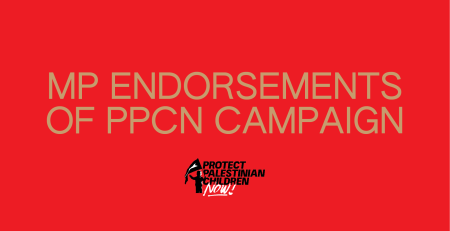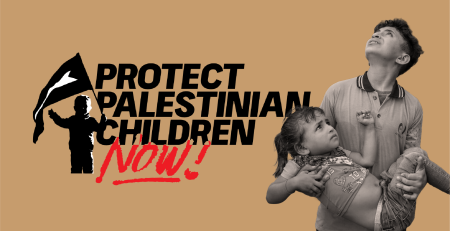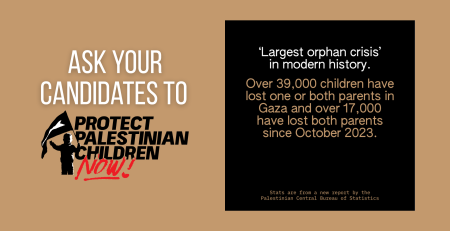An overview of United Church of Canada (UCC) policy from 1948 to Present on Palestine
July 11, 2022, original in The Canada Files
Written by: Karen Rodman
Often, it is said that people are more aware of the situation in Palestine now than in years past. Having combed through the United Church of Canada archives, it seems as if this statement is not backed by the available evidence.
People were very aware of the situation in Palestine through the decades following the Nakba, but over the last half-century there has been much kowtowing to the pro-Israel lobby.
General Council meetings are gatherings of the United Church that bring together representatives from the congregations and the regions across the country to decide on the direction of the church. Since 1925, when the United Church of Canada was founded, this is how the policy of the church is decided
To get a better understanding of the actual policy on Palestine approved by the United Church over the years, the proceedings of the General Council meetings, which are held at the United Church archives in Toronto, were reviewed.
It is clear that the current policy of the United Church does not reflect much of what has been approved the grassroots church through the General Council meetings over the last 70+ years.
After the 1948 Nakba
Just as the new shiny United Nations was established, the United Church of Canada established at its 13th General Council in 1948, a Committee on the Church and International Affairs (CCIA). For a couple decades, the committee’s major focus was on The Middle East and Palestine, and it provided leadership for resolutions that were brought to subsequent General Council Meetings.
In 1954, at its General Council Meeting 16, the United Church grassroots strongly endorsed United Nations Resolution 194, supporting the right of return for the Palestinian people exiled in 1948. Those gathered from across the country also encouraged their church to ask the Canadian government to urge the United Nations reconsider the 1947 Partition Plan.
At the next General Council meeting in 1956, the church voted to say Israel was responsible for 1948, although there were some that insisted for balance that the resolution also include a statement that the Palestinian leadership was to blame for telling their people to leave.
Then for a few years there were no Palestine related resolutions at General Councils.
After the 1967 Nakba
There also was no statement by the church following the Nakba in 1967.
However, in 1968, the General Council Executive of the United Church of Canada issued a statement supporting right of return and called for the end of the occupation. The statement also indicated that criticizing Israel is not anti-semitic.
General Council 23 held later in 1968 approved the United Church of Canada policy continue to include support for right of return. It added that the church supported ending occupation, as well as agreeing that criticism of Israel is not antisemitic. Even today this would be a fairly solid policy, that would align with the BDS movement which calls for ending occupation, equal rights in historic Palestine, and right of return.
General Council 24 in 1971 called for the Canadian Government to support all United Nations resolutions regarding securing justice and self-determination for Palestinians. This 1971 resolution cited the Balfour Declaration from 1917, which said that nothing could prejudice the civil and religious rights of existing non-Jewish communities in Palestine [1]. The resolution also quoted the World Council of Churches saying the “establishment of the state of Israel without protecting the rights of the Palestinians” meant “injustice had been done to the Palestinians by the great powers which should be redressed” [2]. These messages were strong and clear, with a focus on self-determination, and rectifying the injustice done to the Palestinian people.
In 1971, the Committee of Church and International Affairs (CCIA) asked the Canadian secretary of state for external affairs to report on Israeli bonds, including the amount, the mechanism used to transfer them from the country, as well as about tax exceptions and charitable status. This along with several other items was taken to General Council 25 in 1972. These resolutions were passed but never acted upon.
This 1972 General Council resolution included calling for a meeting with Prime Minister P.E. Trudeau to discuss these items. In those days, the United Church of Canada could have easily gotten a meeting with the Prime Minister, but it did not happen due to caving to pressures by the pro-Israel lobby. Based on information in the United Church Archives, a lot of effort was put into stalling this meeting with Trudeau, as well as any action on the approved resolutions.
The B’nai B’rith Friendship and Cooperation Agreement
An Expression of Concern” report was prepared from over two years between 1972 and 1974 by the “Middle East Study Seminars.” This group included many United Church clergy and was prepared on behalf of the CCIA. This report called the United Church of Canada to pressure the government of Canada to press for implementation of UN Security Council Resolution 242, which called for end of occupation, and the settlement of the refugee issue.
The report also indicated that the Jewish National Fund (JNF) should be used in non-discriminatory fashions; the latter being some sort of “balance” where JNF could be used for Palestinian-Arab communities in Israel.
It is not clear from the UCC archives what happened to this report and its recommendations, but it was not implemented. It would seem given the friendship and cooperation accord signed in May 1973 with B’nai Brith, that even as the grassroots were working on the report, the church was fulfilling the promise they had made to the pro-Israeli lobby that even resolutions approved by the church at its General Council did not necessarily need to be implemented. At the very least, the agreement with B’nai Brith had left a chilling effect in regard to work within the church associated with Palestine.
Nonetheless, General Council 27 in 1977 approved a resolution that aligned with the United Nations General Assembly Resolution 3379 (1974) that zionism is racism. The General Council also indicated that the church insist the Canadian government external affairs support the Palestinian people in being represented by the Palestinian Liberation Organization (PLO).
The United Church went quiet about Palestine for a while, but then in 2003, General Council 38 gave its blessing to a Jewish state, while it called for recognition by Israel and Palestine that all citizens have equal rights, protections, privileges and responsibilities for all their respective citizens regardless of religious or national origin.
After Palestinian call for BDS
In 2006, the General Council 39 provided for $1 Million that was committed to support projects related to faith projects of peace for Israel and Palestine, but there appears to have been no accounting of this funding subsequently including in the 2012 Working Group Report on Israel and Palestine. The 2006 conference considered support for ethical investment.
This continued focus on ethical investment continued with the 2009 General Council meeting. However, at this meeting the church passed a resolution that actually asked Palestinians to accept Israel as a Jewish state. This perhaps marked a low point for the United Church succumbing to pro-Israeli pressure.
No Canadian church including the United Church responded to the 2009 Palestine Kairos document.
The much-touted General Council 41 held in 2012
The much-touted General Council 41 held in 2012, even three years after the Palestine Kairos document, did not accept the Kairos document beyond saying it was an educational tool. In fact, the United Church would not even print copies of the Kairos document for its own use as an educational tool. When asked about this in 2014, the council said they used a third party to provide copies to avoid criticism from the pro-Israeli lobby.
The 2012 resolution was quite comprehensive but, in the end, essentially provided only support for some limited settlement boycotts, and future consideration of divestment. It also acknowledged its faux pas of asking Palestinians to accept Israel as a Jewish state. It indicated that it supported right of return as long as it did not compromise Jewish demographic integrity, leaving an overall chill on the entire resolution.
It was clear that efforts had been put into getting an agreement from the Canadian Jewish Congress, and perhaps even the new Centre for Jewish and Israeli Affairs, on the wording of the 2012 General Council resolution. Bruce Gregersen, the United Church lead for Palestine, said he was quite taken back when what he thought was agreement with B’nai Brith the evening before, became criticism following the vote.
In the end, the resolution from General Council 41 (2012) was not implemented other than some very mild illegal settlement boycott including Soda Stream, until Soda Stream moved operations to the Negev, and some intent to boycott Keter Plastic, which never really materialized.
The General Council 42 in 2015 resolution called for implementing the General Council 41 resolution since it had for the most part not been implemented. It also added in the divestment of United Church of Canada funds.
What was actually implemented after 2012
Subsequently, no action was taken to implement further the General Council 41 or 42 resolutions, other than some letter writing to the Canadian government about labeling of settlement goods. No action to divest was taken by any of the then four courts of the church, nor the pension plan. In fact, none of the 3000 congregations in the United Church of Canada have even considered divestment.
Several resolutions were deferred from General Council 42 to the General Council Executive but no action was taken on these, and no resolutions were made from the floor at General Council 43 in 2018 as the church was focused on its own restructuring, not on theology nor related program.
There have been many calls by the United Church for engagement with Palestinian groups in Canada the last 50 years and as recently as General Council 42 in 2015, but little evidence of this action being implemented exists with little engagement by the United Church with any Arab or Palestinian diaspora groups. However, the archives are filled with the antics of doing summersaults to appease the pro-Israeli lobby.
The current United Church of Canada taskforce on Palestine indicates that the BDS movement is “too broad a spectrum of participants with significantly varied and sometimes unacceptable goals” and that the word apartheid shuts down conversation. This policy does not reflect the Resolutions approved over the years by the United Church at General Council meetings, nor does it respond to the calls from the Christians in Palestine in 2009 or 2017.
Just Peace Advocates, the Canadian BDS Coalition, Sabeel Palestine and others have submitted responses to the United Church’s current taskforce. You too can add your voice, and also call for the United Church to renounce its agreement with B’nai Brith and other pro-Israeli lobby organizations.
Karen Rodman was ordained by the United Church of Canada in 2015 and is the Executive Director of Just Peace Advocates. She currently has a four year long case at the Ontario Human Rights Tribunal based on the church discrimination of her related to her anti-zionist worldview. The church maintains that Palestine is just a political issue.
[1] referencing Palestine Royal Commission Report, London, 1937.
[2] Palestine Refugees–Aid with Justice the Report of Consultation on the Palestine Refugee Problem published by the World Council of Churches 1970.
Leaders of the United Church of Canada and B’nai B’rith sign a statement regretting their dispute over the the treatment of Palestinian refugees. (Photo Credit: Toronto Star Archives via Toronto Public Library)






